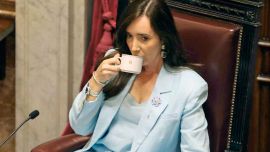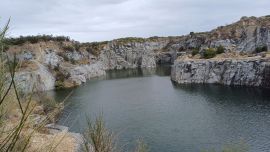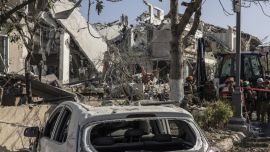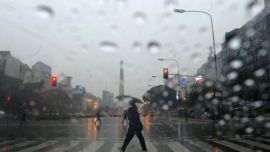For the ultra-loyalists of ex-president Cristina Fernández de Kirchner Tuesday’s Supreme Court ruling confirming her prison sentence and lifelong ban from public office was brutal lawfare whereas for her many detractors it was pure justice. But upon closer scrutiny it is neither one nor the other.
The big picture remains broadly positive as a supreme assertion of equality before the law when a former two-term president who still remains the darling of at least 15 million Argentines ends up in at least some form of jail – impossible not to celebrate decades of impunity for corruption within a sluggish judicial system being ended in such striking fashion. Yet the Supreme Court’s apparent failure to ground this historic ruling on a watertight case leaves a feeling of disappointment – a ground-breaking landmark or the chronicle of a decision foretold?
Any verdict ultimately boils down to the either/or proposition of guilty or innocent and it is impossible to apply either adjective to Cristina Fernández de Kirchner in any absolute terms. The evidence of crony capitalism in the allocation of Santa Cruz road-building contracts (80 percent of which accrued to the hitherto bank clerk Lázaro Báez forming his construction company just a few days after Néstor Kirchner’s presidential inauguration in 2003 with zero prior experience) is simply too overwhelmingly voluminous to permit any claim of innocence – not even the ex-president’s daughter Florencia (spared the dock by even the most relentless plaintiffs) can be considered completely innocent if she allows an unexplained US$5 million to land up in her bank account, never mind Cristina. There would seem to be more leverage in arguing that the ex-president is being unduly singled out among the corrupt due to her ideology than insisting that she is squeaky clean.
Yet while it seems impossible to detach Fernández de Kirchner from the fraudulent allocation of Santa Cruz highway contracts, finding a smoking gun to connect her directly appears equally elusive. The prosecution’s case seems to have followed a “she must have known” logic in lieu of producing any hard evidence of personal participation in the scam. Such swindles seem far more in character for her husband than for a compulsive orator whose main passion while president appeared to be preparing her numerous nationwide broadcasts with bombastic speeches lasting up to four hours. Far likelier that she took the high ground leaving the dirty work to others while presenting no objections to the cash inflow – not that this serves to plead her innocence but her guilt seems less than complete.
If the prosecution is not immune from criticism, the Supreme Court justices leave something to be desired in presenting their historic ruling as a triumph of judicial independence. The timing is unfortunate with the electoral ban coming less than 10 days after the ex-president confirmed her provincial run in the Tercera Sección (the Greater Buenos Aires South Side with almost five million voters) – this removal of the opposition’s most popular politician looks uncomfortably like playing the government’s game even if it has also been widely rumoured that many libertarian strategists fancy her as the ideal rival for the electoral fray. The justices also seemed in a hurry to confirm the prison sentence and the ban from public office with their summary dismissal of the appeals by both the defence and prosecution – within the context of a multi-billion fraud, the prosecution’s request for the prison sentence to be doubled from six to 12 years would appear quite rational and worth considering but this would have impeded confirmation of the previous convictions and still left Fernández de Kirchner in the electoral race. Perhaps the justices saw the perfect as the enemy of the good.
This last word from the Supreme Court is not end of story by any means with other cases in the pipeline. The ex-president’s lawyers speak of the Inter-American Commission on Human Rights but the latter are under no obligation to admit the case and nor is there any guarantee that they will do so. Kirchnerite pushback against the judicial elimination of their leader is still in early days although the past 18 months have served to show that this government neither fears nor respects opposition demonstrations. It also remains to be seen who will replace the ex-president on the ballot for the provincial elections (Máximo Kirchner to keep the surname alive?) if indeed those elections will be held in September as scheduled – if not, this would be a blow to the authority of Buenos Aires Province Governor Axel Kicillof. Something of a Pandora’s box.

















Comments